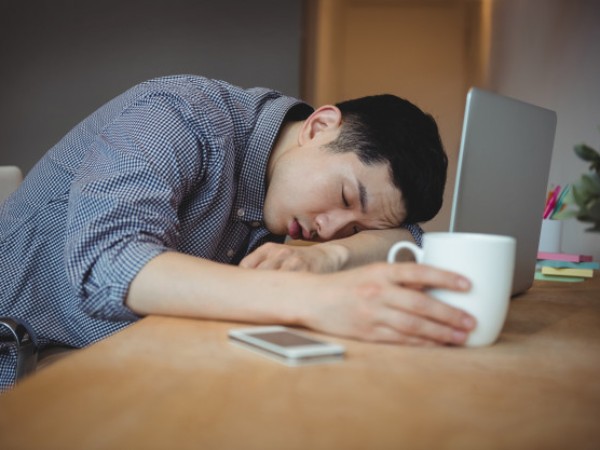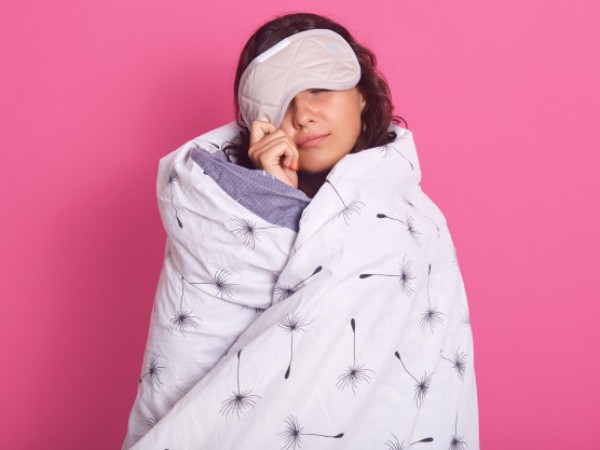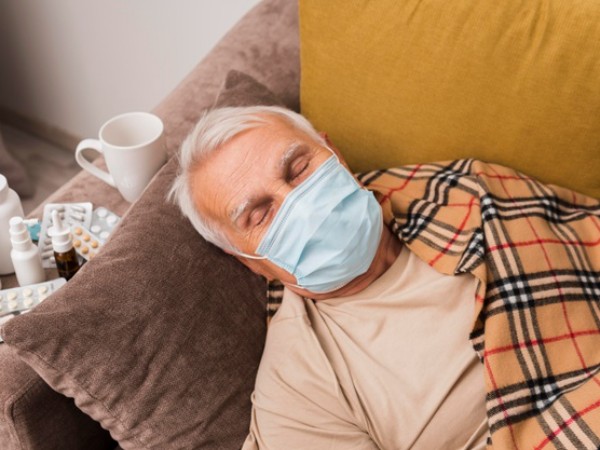
Lack Of Sleep: A Major COVID-19 Dilemma
Adequate sleep is as important as having nutritious food when it comes to maintaining a healthy lifestyle. The way poor lifestyle habits, untimely meals and lack of exercise cause many diseases, lack of enough sleep can also cause serious health problems [3]. You would need at least six hours of sleep every day for the mind to function correctly and for the body to remain healthy [4].
Lack of sleep can pave the way to several health issues such as obesity, weak immune system, fatigue, neurological disorders, risk of chronic diseases, poor sex life, skin disorder, heart disorders, and impaired memory etc. [5].
Coupled with the stress and uncertainty of the looming pandemic, you may find yourself tossing and turning in your sleep, contrary to the reports during the initial months of the COVID lockdown, where people reported better sleeping hours and quality. Neurologists explain that “As people were working from home, they had more flexible schedules, they didn’t have the same stress of going to the office, waking up early, beating the traffic and not missing on a half-day’s salary” [6].
The experts further stated that this permitted people of having the luxury to sleep when they feel sleepy, resetting their whole system and thereby promoting better sleep quality. However, this came to a halt with pandemic not coming to a halt – resulting in low sleep quality [7].

What Is COVID-Somnia?
Recently, there has been a surge in sleep disorders associated with Covid-19, which is being termed as COVID-somnia. Reports suggest that due to the fears of contracting the coronavirus, concerns about loved ones, not being able to go to work, not having social contact with others have attributed to the shifts in sleeping patterns [8][9].
 Chapare Virus: Human-To-Human Transmission Of Deadly Ebola-like Virus Confirmed
Chapare Virus: Human-To-Human Transmission Of Deadly Ebola-like Virus Confirmed
COVID-somnia is connected to additional stress and anxiety brought on by the pandemic, which can be understood through the rapid spike in the number of mental health issues [10]. It is a proven fact that anxiety is a common trigger of sleep issues, and considering the current situation, your anxiety levels may be high, especially during the nights.
This is because during the day, we ‘cope’ with distractions, and at night, you are left alone with your thoughts, which can make you feel worried about the unforeseen future, disturbing your sleep. Loss of sleep affects not only mood and attention but the body’s immune functioning and its ability to fight infections, a factor that is extremely important during the COVID times [11].
 The One Symptom / Sign That You Have (Had) COVID-19 Already
The One Symptom / Sign That You Have (Had) COVID-19 Already
Abnormal dreams and disruptive nightmares are other types of sleep disturbance that can be triggered by the pandemic, which has a direct impact on the psychological and mental well-being of individuals [12].

How To Manage COVID-Somnia?
According to experts, these are some of the ways through which you can manage your sleep:
Sleep hygiene, also called as healthy sleeping habits are the best means to prevent yourself from being adversely affected by sleep deprivation [13].
• Leave electronics and work-related things out of the bedroom.
• Set up a bedtime routine such as having a warm bath or shower, meditate or read a book in bed.
READ RELATED: Weight loss: Apple cider vinegar diet to lose belly fat in just 1 week
• Practice good sleep hygiene, such as going to bed and waking up at about the same time, even on weekends.
• Maintain a dark and cold atmosphere in your bedroom.
• Do not fluctuate your bedtime and wake up time.
• Avoid large meals for at least three hours before bed.
• Avoid caffeine at least eight hours before sleeping.
• Do not consume alcohol right before sleeping.
• Exercise regularly as studies point out that people sleep better and feel more alert during the day if they exercise [14].

How does sleep issues affect someone with existing health problems?
Lack of sleep or disturbed sleep has been linked to the development and management of several chronic diseases and conditions, including type 2 diabetes, cardiovascular disease, obesity, and depression [15].
Diabetes: Insufficient sleep is linked to an increased risk for the development of type 2 diabetes.
Obesity: Short sleep duration results in metabolic changes that may be linked to obesity in all age groups.
Depression: Sleep and depression are internally linked, and lack of sleep has been described as an important symptom of depression.
Cardiovascular disease: Persons with sleep apnoea are at increased risk for several cardiovascular disorders [16].
Chronic pain and arthritis: Patients with rheumatoid arthritis have lower overall sleep efficiency and wake up more often, which in turn increases the inflammation and causes more pain [17].

On A Final Note…
Focus on your mental health to improve sleep quality. The quality of your sleep directly affects your mental and physical health and the quality of your waking life, including your productivity, emotional balance, heart health, weight and many more. While the sleep requirement of one individual differs from the other, health experts and studies point out that it is critical for an adult to get 6 to 9 hours of sleep every night, to avoid the onset of various health problems.
Source:







